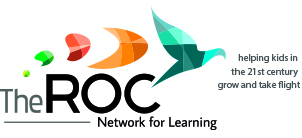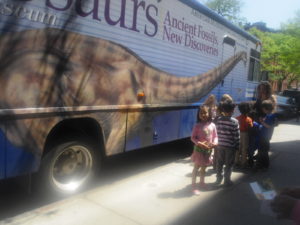THE SPACE RACE, ROCKET SCIENCE & TECHNOLOGY of the 20th CENTURY
“The Earth is the cradle of the mind, but one cannot eternally live inside a cradle.” These words were spoken by Konstantin Tsiolkovsky, the Soviet rocket scientist. In this class, students will learn the history of rocket science, starting from Tsiolkovsky and ending with Apollo 11 and the Cold War. We will discuss the early adventure clubs, the early missiles, the space race, and more. It’s rocket science – but it isn’t hard! No previous knowledge is required, although some basic algebra wouldn’t hurt.
HISTORY OF SCIENCE
Humans have always been curious about the universe and how it works. Eventually, this curiosity leads to profound discoveries which change our view of the world around us.
In this class, we will discuss some of these great discoveries. We will start with the ancients and how they viewed the world around them, and we will work our way from Archimedes to Galileo, and finally to modern times. We will conclude the term discussing what the future has in mind for science and technology. Both advance experience as well as no previous knowledge about the sciences is welcome!
THE SCIENCE OF GENIUSES or THE SCIENCE OF THE BRAIN
The human brain is one of the most complex structures in the universe. It has been the source of the success of humans for centuries, but how does it work? Why can we think about abstract concepts? How does our brain process information? What are the parts of the brain? These are the types of questions that we will be answering in this class. In the first few classes we will start with an introduction to the brain as a whole. Then, we will explore the different parts of the brain and discuss the purpose and function of each part. The goal of this class is to teach students how the brain works and to illustrate how the brain makes us the most advanced species. No prior knowledge of the brain is necessary as this is an introductory class.What is a genius? What geniuses do you know? How do geniuses impact our world? What are their lives like?
In this multi-media discussion based class, the science of some of the most world renown, and little known geniuses will be investigated. Each class will cover one outstanding individual who is considered a genius – we will discuss their work, their lives, their contributions, and how they influenced their era in history. Some of the individuals that will be explored are Albert Einstein, Nikola Tesla, Marie Curie, Leonardo Da Vinci, Sir Isaac Newton, Johannes Kepler, and many more. The goal of this class will be for students to gain a better understanding of what genius is, how we define it, and who gets to be considered genius.
In this class we will be focusing on introductory concepts describing the formation of Earth and its natural features. We will cover historical geology from Earth’s formation to present day in broad strokes and focusing in on key aspects of geological time that concern human history. Student’s will also gain a functioning understanding of plate tectonics and the impact of continental drift on the world. Student’s will also be able to observe, test and classify rock and mineral samples as a connection point to the abstract scientific concepts and historical events discussed. Student’s will be required to take notes using provided organizers, take part in hands-on labs and work on several whole group projects over the course of the semester.
ANTHROLOGY / PRE-HUMAN HISTORY
This class thoroughly examines the Human Story covering the span of human prehistory and history from approximately 200,000 years ago to present day, focusing on the unique qualities that separate humans from other animals on Earth as well as the commonalities we share with other existing species as well as other humanoid species that have existed previously. Topics will include but are not limited to natural and artificial selection, speciation, cyclical climate change and early human technological development.
CHEMISTRY
An inquiry-based, hands-on class featuring labs related to making, testing and experiencing acids, bases, polymers, metals, atomic and molecular structures, elements and element families, and more. Exploration of both inorganic and organic materials in our environment as well as explorations of their reactions, and the transformations they undergo will be investigated. Students will be encouraged to think like Mythbusters to understand variability and applications of chemistry and physics, will also learn how to use lab equipment safely and effectively.
BIOLOGY & MICROBIOLOGY
The microbiome is one of the most populated places on earth. When people think of microorganisms, viruses and harmful bacteria often come to mind. However, we would not be alive without these microorganisms. Many play important roles such as preventing disease and aiding digestion. In this class, students will learn about many of these microorganisms and the role they play in our lives. We will even see some of the features of the microbiome under microscopes. This is an introductory level class so no previous knowledge is required.
ASTRONOMY
This class will be about the universe and everything in it!
From the planets and objects more close to home in our solar system, and stars in our galaxy, to the most distant galaxies that scientists have discovered.
The nature of astronomical objects will be investigated as well as the physical processes that govern their formation, progression and interactions. We will explore history of theories in the the field, as well as most recent and interesting ideas in astronomy including the possibility of life elsewhere in the universe.
The purpose of this class is to teach the students about the universe and to encourage scientific thought and analytical thinking. No previous knowledge about astronomy or mathematics required. All materials are included.
GRAVITY
Gravity is the one of the four forces of nature, and it is the one we are the most familiar with, but it is also the strangest. Although gravity is extremely weak, it is at the root of huge scale phenomena such as keeping the planets in orbit.
In this class, we will begin by talking about Newton and his theory of gravity as well as a bit of Newtonian mechanics. As the class progresses we will cover the effects of gravity such as tides, and orbits then we will move onto Einstein’s theory of relativity and how Einstein revolutionized the way we think about gravity. We will discuss phenomena related to relativity such as black holes and curved space-time, and eventually, we will cover more exotic and newer ideas such as antigravity and other universes. There will be a little bit of mathematics in this class, although no previous knowledge of high school mathematics is required.
ARTIFICIAL INTELLIGENCE (AI)
What is artificial intelligence? How can it work? How close are we to achieving this milestone? In these classes, these questions will be discussed and students will learn how an artificial intelligence could be possible. Students will learn about Quantum Computers, machine learning, neural circuits, and the difference between our brain and a computer. The goal is to teach students the mechanisms of artificial intelligence and how it could work. No previous knowledge is required.
SPECIAL RELATIVITY
Special Relativity, a subject once known only to a handful of physicists, is now one of the pillars of modern physics. When Albert Einstein published Special Relativity in 1905 he shocked the world with his radical new theory and it’s implications. In this class, students will learn the basics of special relativity and why many people find it extraordinary. Students will learn about time as the fourth dimension, how space and time are unified into one concept of spacetime, and how time travel into the future is possible. We will be using a little bit of algebra, but otherwise no mathematical knowledge is required. The goal of this class is to understand special relativity and the phenomena, which it predicts.
PARTICLE PHYSICS
In our everyday lives, a baseball cannot go through a wall and we can observe many events with absolute certainty. However, in the world of particle physics, this could not be further from the truth. In this class, students will learn about physics on the atomic scale. We will start with a history of particle physics and a description of how we can observe events on the subatomic scale. After this brief introduction, students will learn about the possibility of multiple universes, how light is both a particle and a wave, why quantum could be the next major advancement in technology, how particles can pass through solid barriers, and many other astonishing phenomena that occurs only in the quantum world. Students do not need any prior knowledge to take this class and there will be no mathematics used.




Recent Comments